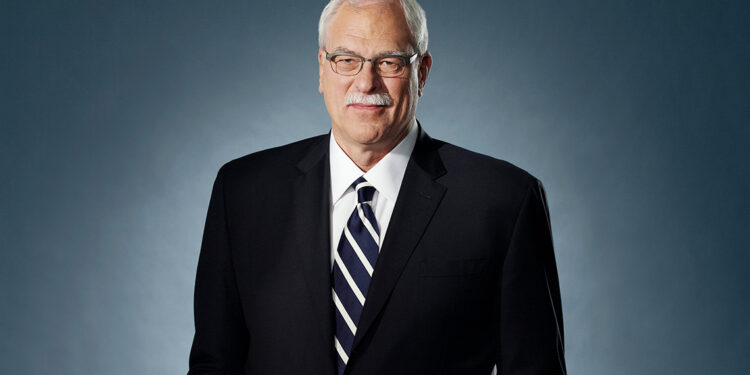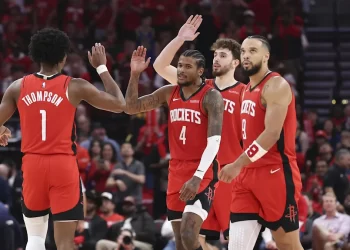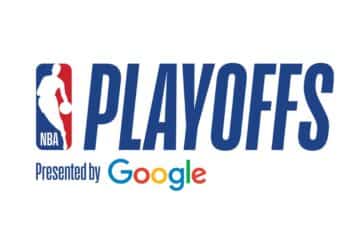By: Zachary Draves
In a world where we are prone to creating caricatures of public figures based on our own perceptions of who they are, we run the risk of becoming oblivious to who they actually are.
For many of us who grew up on the Chicago Bulls dynasty of the 1990s, we thought that former head coach Phil Jackson was the best to ever lead the charge. The “Zen Master” who pioneered the triangle offense was able to get some of the game’s greatest players on the same accord by tapping into Native American rituals that focus on the mind, body, and spirit.
In the process, he became one of the winningest coaches in NBA history with 11 championships, six with the Bulls and five with the Los Angeles Lakers. While his approach to the game is brilliant beyond compare, those smarts haven’t always translated into off the court matters as evidenced by his most recent comments.

(Courtesy: Jeff Haynes/Agence France-Presse- Getty Images)
(Courtesy: Nathaniel S. Butler/Getty Images)
During a recent interview on the Tetragrammaton podcast with Rick Rubin, the 77 year old hall of famer said that he hasn’t watched the NBA since the 2020 season in the COVID protective bubble due to the player’s donning social justice slogans on their jerseys and seeing Black Lives Matter on the court.

(Courtesy: Kevin C. Cox/Getty Images)
“They had things on their back like ‘Justice’ and a funny thing happened like, ‘Justice just went to the basket and Equal Opportunity knocked him down. Some of my grandkids thought it was pretty funny to play up those names; I couldn’t watch that.”
He then accused the league of alienated viewers.
“It was trying to cater to an audience or trying to bring a certain audience to the game,” he said, “and they didn’t know it was turning other people off. People want to see sports as non-political. Politics stays out of the game; it doesn’t need to be there.”

(Courtesy: Getty Images)
There are so many problematic angles to this that it can be critiqued best through three specific lenses.
First, if history has taught us anything it is that sports and politics, for better or worse, have always mixed. The names Muhammad Ali, Bill Russell, Kareem Abdul Jabbar, Arthur Ashe, Billie Jean King, and Curt Flood speak for themselves and Jackson knows this because he bore witness to each of their pursuits for social change using the platform of sport.
While playing for the New York Knicks in the early 1970s, Jackson himself was not only political, but was full on counter cultural as he helped lead the Knicks to two NBA championships. He was not only against the Vietnam War, but he was even present at the uprising outside the 1968 Democratic National Convention Chicago. He also admitted to smoking marijuana and using LSD.
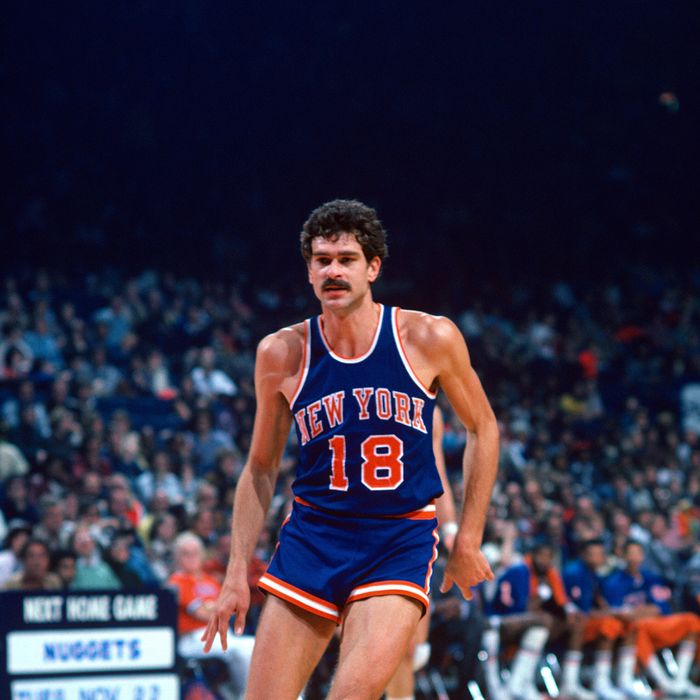
(Courtesy: Focus on Sport/Getty Images)
Second, human rights aren’t political. People should be able to pursue life, liberty, and the pursuit of happiness in the freest country on earth and anywhere else for that matter without the threat of discrimination, hate, and violence. These basic tenets shouldn’t be up for debate nor put to a vote by politicians and institutions.
The NBA players were merely meeting the moment of the sweltering saga that was 2020. Not only did the COVID-19 pandemic upend daily life, but it was the wrenching sight of George Floyd murdered by Minneapolis police officer Derek Chauvan on tape that galvanized the league and its players to take the time unexpectedly afforded to them to take a collective stand.
That along with the killings of Breonna Taylor by Louisville police, Ahmaud Arbury by vigilantes in Georgia, and the police shooting of Jacob Blake in Kenosha, Wisconsin amped up the players desires to not only speak up, but to boycott games to address the issue of racial injustice and to spearhead voter engagement efforts for that year’s election.
They saw that the human rights of African Americans were being violated and they did their part to uphold those rights.
Third, these comments shouldn’t come as a huge surprise considering Jackson’s past statements pertaining to black players.
In 1999, he claimed players lacked the capacity to focus by implying that “they have limitations of their attention span, a lot probably due to too much rap music going on in their ears”
When the NBA was coming off the fallout from the Malice in the Palace in 2004 and implementing the strict dress code that sought to ban hip hop clothing the following year. Jackson, in favor of the ruling, said that players are “getting out of prison garb and thuggery aspect of basketball that has come along with hip hop music.”
He seems to have a tendency to use hip-hop culture as the scapegoat for perceived shortcomings, a common tactic used by those who engage in racially charged respectability politics. So it is a bit ironic that he decides to go on Rick Rubin’s podcast and any hip-hop head would tell you about his pedigree in the culture from producing some of rap’s music biggest names such as the Wu-Tang Clan, Beastie Boys, Run-DMC, and Public Enemy to co-founding Def Jam Records.
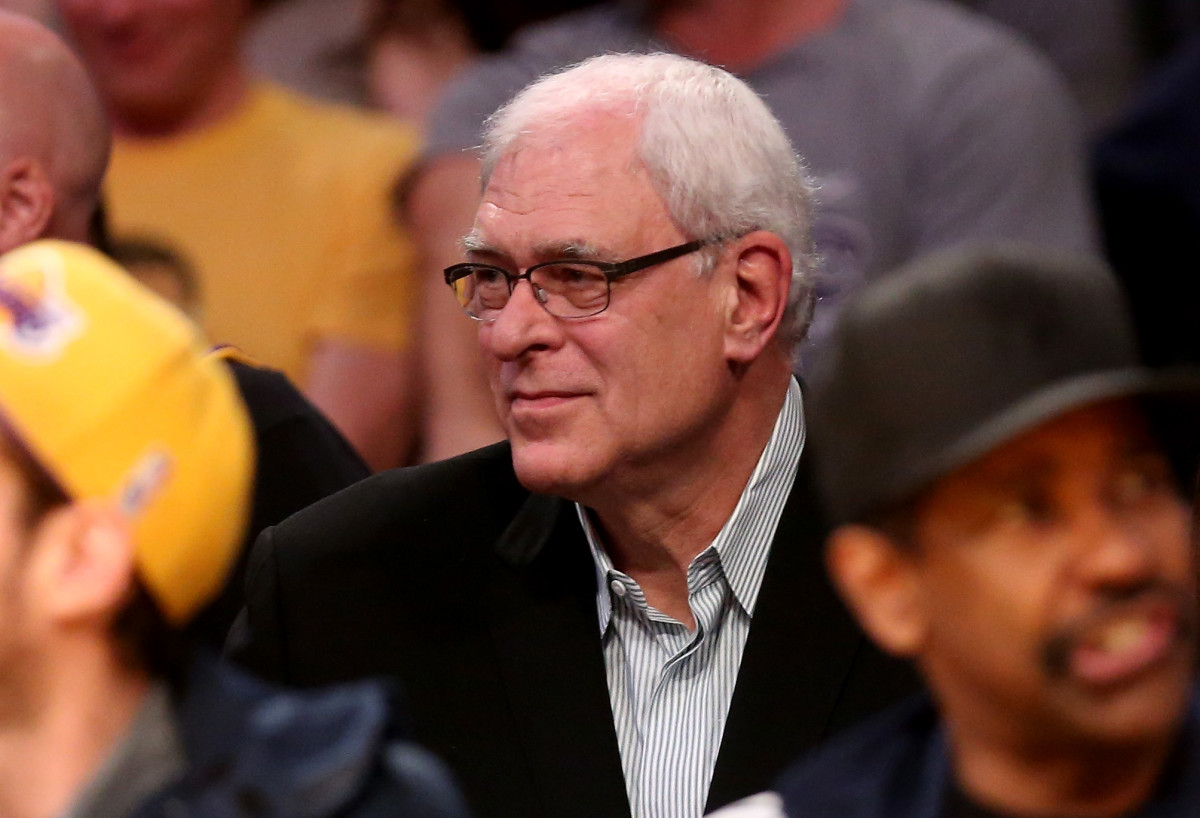
(Courtesy: Stephen Dunn/Getty Images)
Then in 2016, he referred to LeBron James’ associates as a “posse” in an interview with Jackie MacMullan of ESPN. com. He said in criticizing LeBron’s return to the Cleveland Cavaliers from the Miami Heat “you can’t hold up the whole team because you and your mom and your posse want to spend an extra night in Cleveland. I do know LeBron likes special treatment.”
LeBron responded by saying that he had lost respect for Jackson and acknowledged a racial overtone in that remark.
The implication being that LeBron and his entourage are up to no good and perhaps are looking for trouble. Essentially criminalizing the very same black excellence that helped garner him the status of perhaps the greatest coach of all time.
Phil Jackson has shown us who he is at least for the last twenty-five years since he left the Bulls. Maybe some of us turned a blind eye to his racial ignorance because we were caught up in romanticizing the glory days of some of the best basketball we ever saw that he just happened to facilitate.
But it goes back to the notion that just because you have black friends, that doesn’t mean that you can’t be racist. In this case, just because you coach black players, well you know the rest.


 NFL
NFL